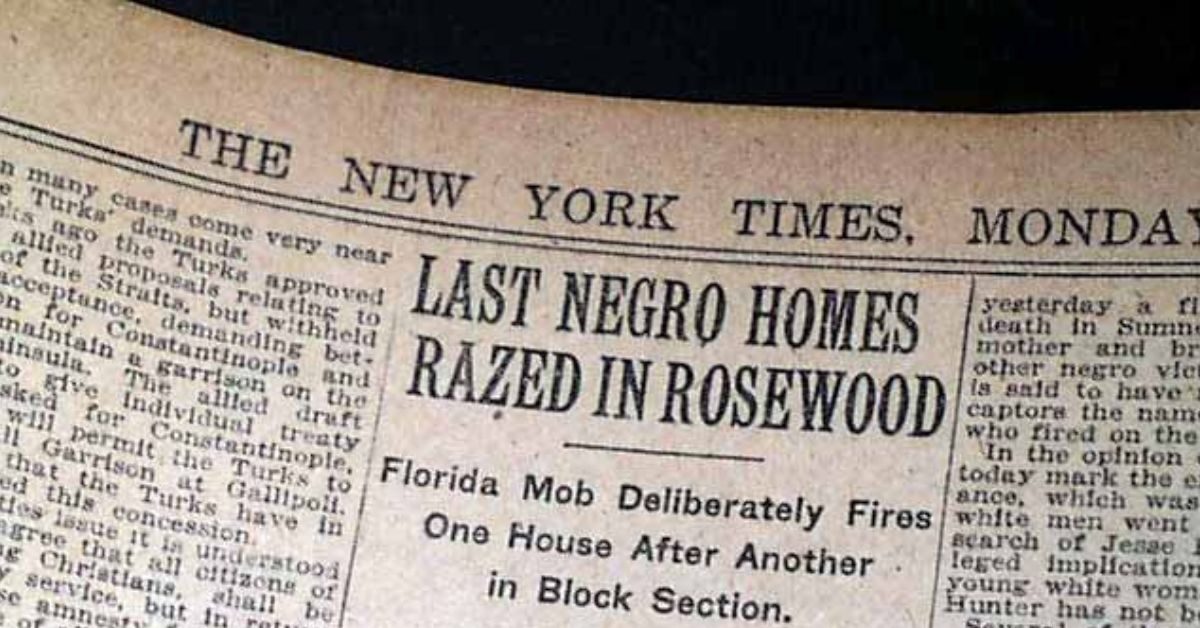The Rosewood Massacre was a violent attack on the predominantly African-American town of Rosewood, Florida, that occurred in January 1923.
The attack was triggered by a false rumor that a white woman had been sexually assaulted by a black man in the nearby town of Sumner. This rumor led to a mob of white men attacking the residents of Rosewood, burning down homes and businesses and killing an unknown number of people, with estimates ranging from six to 27.
The massacre received widespread media attention at the time and has been extensively studied and documented in the years since.
In 1994, the Florida legislature passed a bill providing reparations to the survivors and descendants of Rosewood, making them the first African Americans to receive reparations from a legislative body in the United States.
The Rosewood Massacre stands as a significant moment in American history and a reminder of the deep-seated racial tensions that have long plagued our nation.
The events at Rosewood were later depicted in a film called “Rosewood,” released in 1997 and directed by John Singleton. The film starred Ving Rhames and Don Cheadle and was produced by the rap group Outkast.
The film brought renewed attention to the tragedy and helped to ensure that the events at Rosewood would not be forgotten. It is important to remember and learn from events like the Rosewood Massacre in order to prevent similar tragedies from occurring in the future.
The Descendants of Rosewood Foundation has announced a commemoration event to honor the eight families affected by the 1923 Rosewood Massacre.
This special event, called the Remembering Rosewood Centennial, will take place at the University of Florida in Gainesville from January 8th to 14th, 2023.
It is being sponsored by the Holland & Knight law firm and presented by the Southern Poverty Law Center, with the University of Florida serving as the host.
The purpose of the week-long commemoration is to remember those who lost their lives 100 years ago and to have a larger discussion about various issues, including race relations, human rights, civil rights, land ownership, and wealth accumulation in America.
There will be various activities during the event, such as the opening of the Rosewood Traveling Museum, a wreath-laying ceremony, seminars for young people, movie screenings, and guest appearances from prominent scholars, activists, and cultural workers.
This event aims to provide a glimpse into what the next 100 years may hold for Black America. This remembrance is a chance to remember the past and to work towards a brighter future for all.





